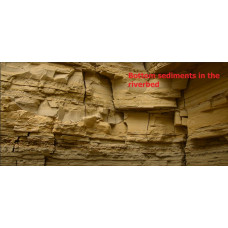Dew (soil) - bottom sediments of predominantly dystrophic water bodies, whose waters are rich in humic acids. They have a brownish-brown color and consist almost entirely of the remains of plant organisms.
For the first time in 1862, Swedish scientist G. von Post introduced two terms for lake sediments: "gittia" and "dew". Gittia according to Post are sediments of autochthonous nature, the organic matter of which was formed at the expense of the population of the water body itself. Dew is sediment of allotigenic character, formed by the ingress of dissolved humus substances into the lake with the subsequent deposition of dissolved humus substances. The German scientist R. Lauterborn added the term "sapropel" to the two basic concepts of "gittia" and "dew", by which he meant sediments with a hydrogen sulfide odor, formed in shallow lakes with reducing conditions near the bottom.
Most scientists have applied the concept of "sapropel" in the broader Potonier sense to lake sediments enriched with organic matter, and have used the most general terms: "sapropel sediments," "bottom sediments," "silt sediments," "lake sediments," avoiding the term "dew."
Dew
Tags: dew

